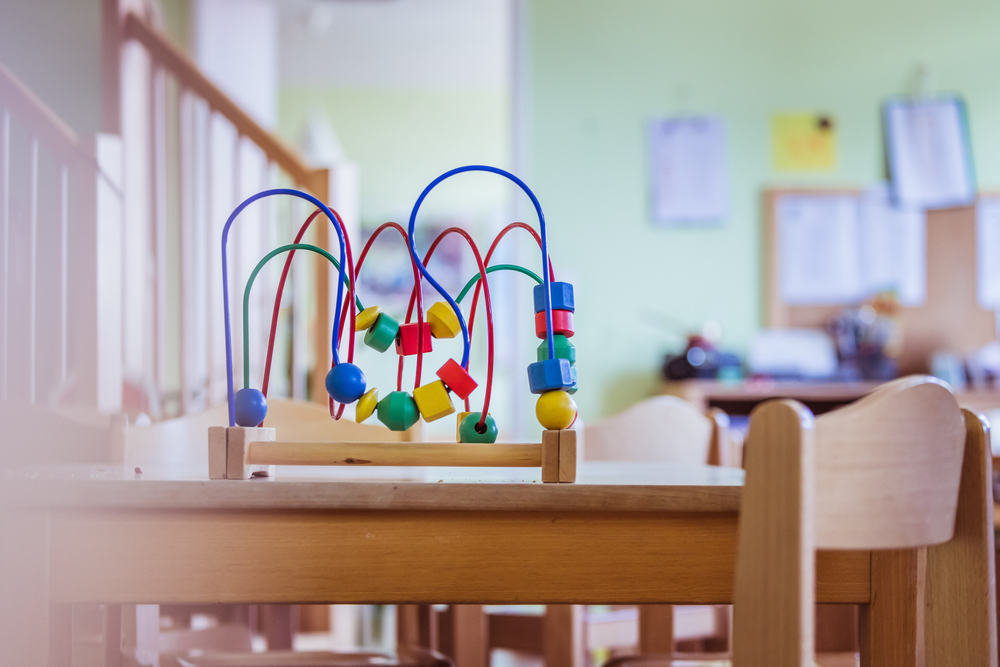Number Sequencing Normal Math Worksheets for Ages 3-4
6 filtered results
-
From - To
Discover our engaging Number Sequencing math worksheets designed specifically for children aged 3-4. These worksheets provide a fun and interactive way for young learners to understand the concept of number sequencing. By engaging with colorful illustrations and age-appropriate activities, kids will enhance their counting skills, number recognition, and cognitive abilities. Our worksheets are structured to foster early mathematical growth while keeping learning enjoyable. Perfect for homeschooling or classroom use, these resources offer the ideal foundation for your child's future success in math. Explore our collection today and watch your child flourish in their understanding of number sequencing!
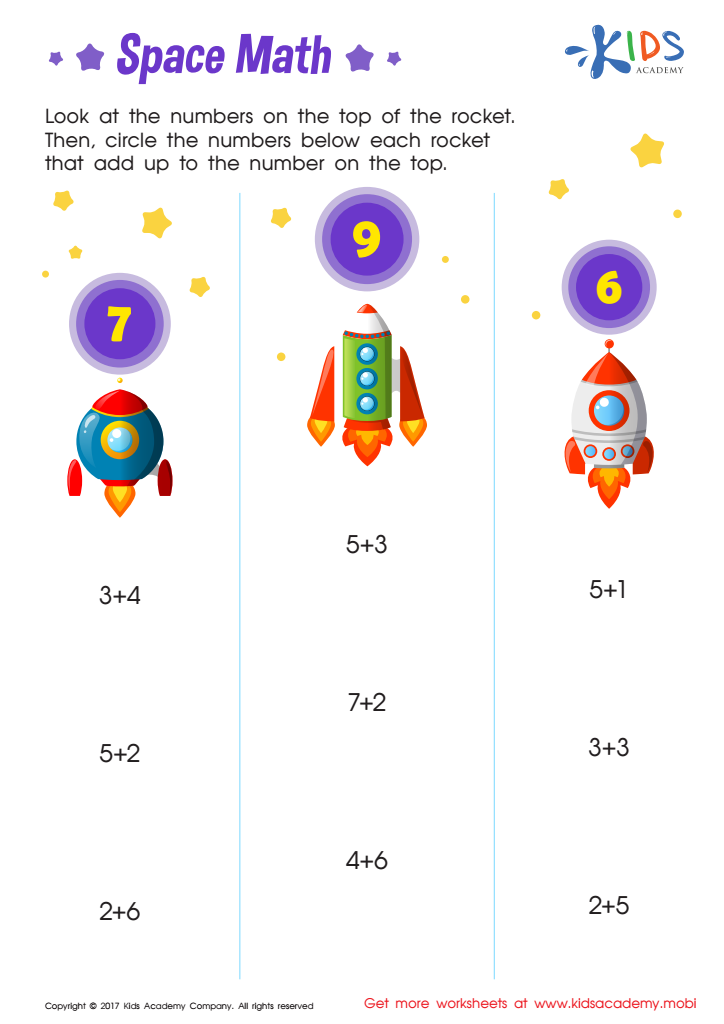

Addition: Space Math Worksheet
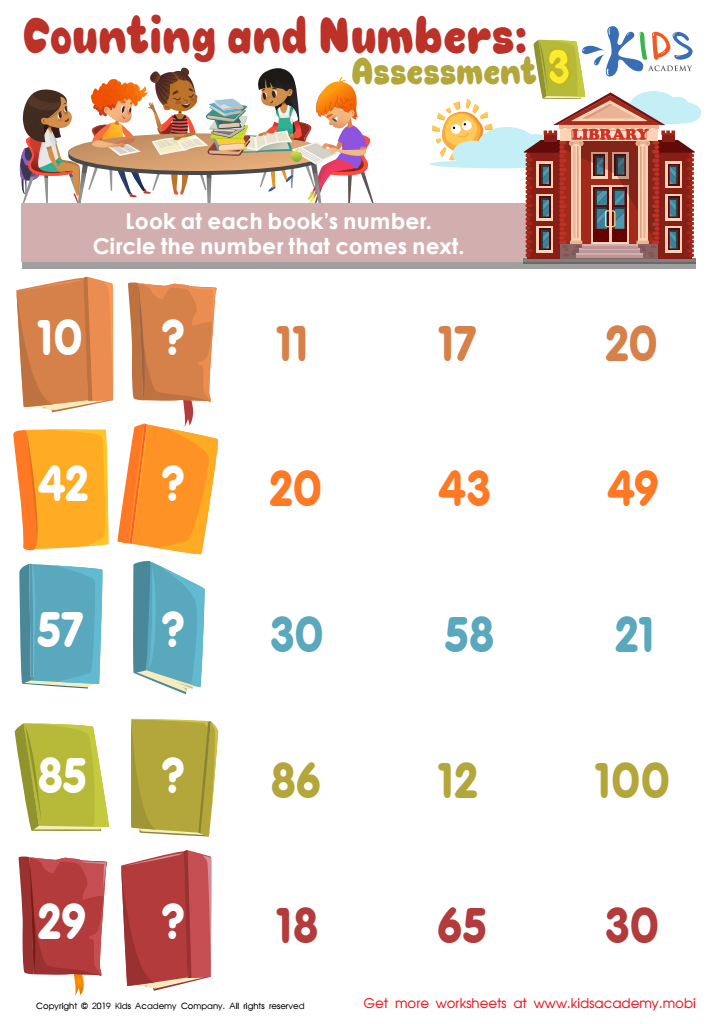

Counting and Numbers: Assessment Worksheet
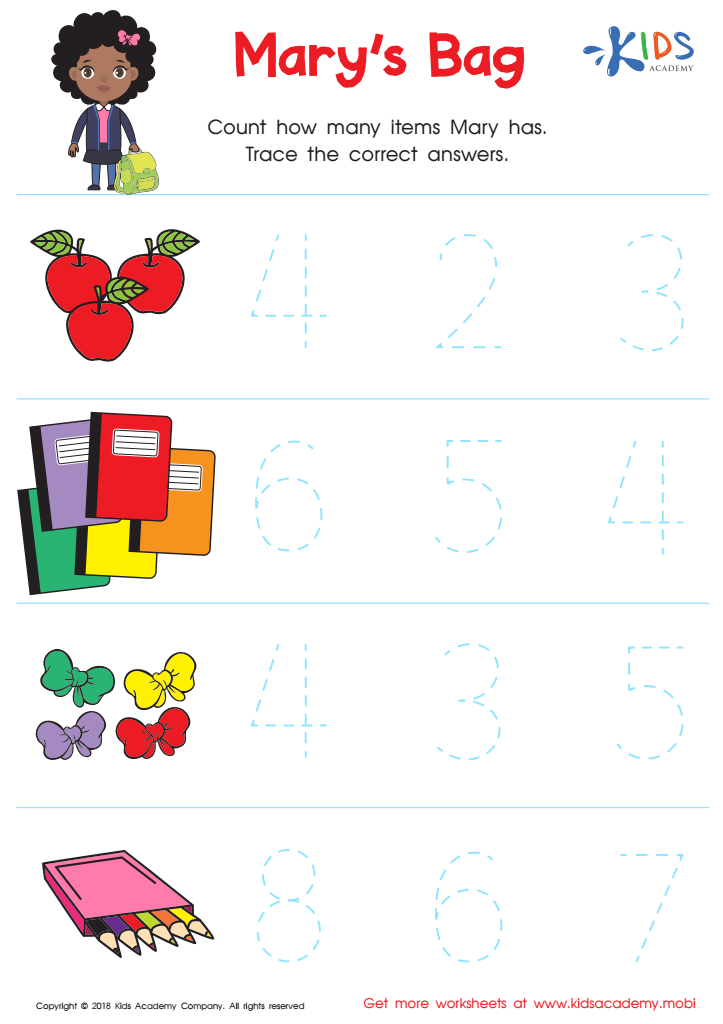

Kindergarten Number Tracing: Mary's Bag Worksheet


Frog Countdown Worksheet
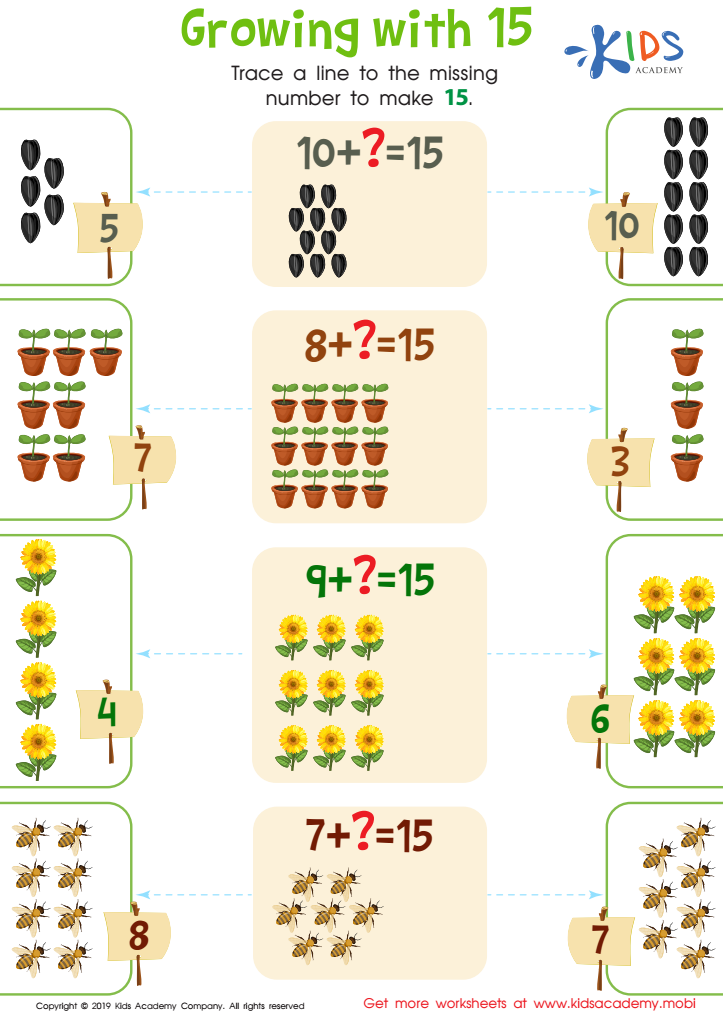

Growing with 15 Worksheet
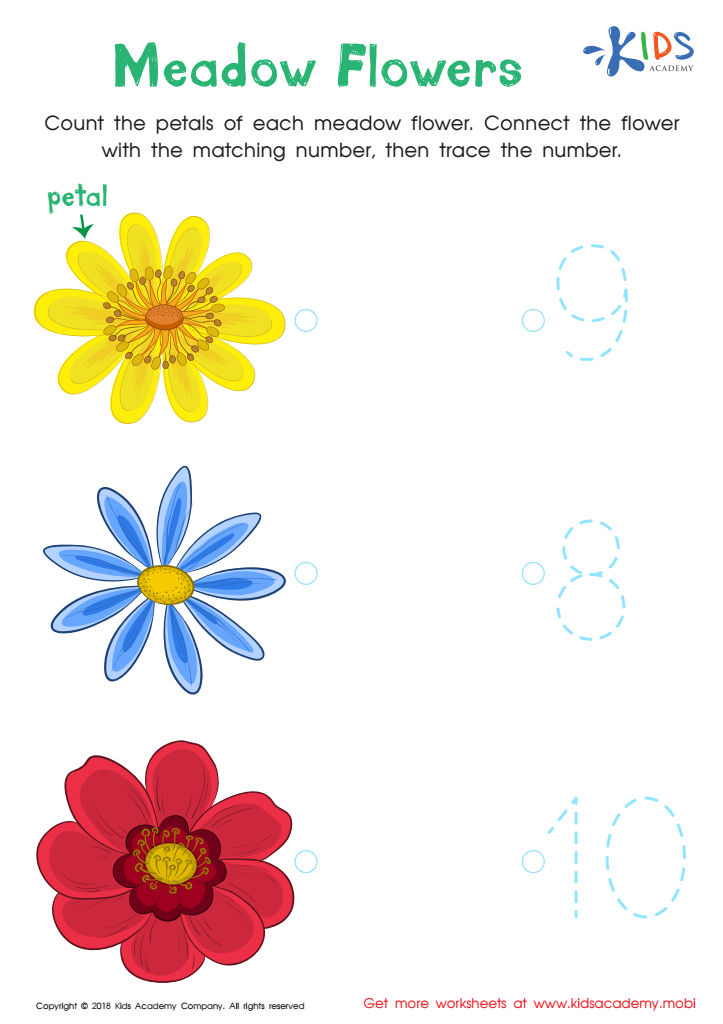

Kindergarten Number Tracing: Medow Flowers Worksheet
Number sequencing is a fundamental skill that lays the groundwork for early math understanding in children aged 3-4. Parents and teachers should care about this aspect of math education because it helps develop essential cognitive skills, including memory, pattern recognition, and logical thinking. At this age, engaging children in number sequencing activities fosters a sense of order, helping them understand how numbers relate to one another.
Moreover, mastering number sequences aids in preparing children for more advanced mathematical concepts, such as addition and subtraction. Young learners who can recognize and manipulate sequences can better understand the concept of numbers as part of larger groups, which is crucial for overall mathematical literacy.
Additionally, number sequencing supports language development through the introduction of numerical vocabulary and praises children’s ability to verbalize their thought processes, leading to stronger communication skills. Activities like counting songs, games, and hands-on experiments keep children engaged and make learning enjoyable. By investing time in number sequencing, parents and educators equip children with critical foundational skills that enhance their confidence and enthusiasm for learning, setting them on a path for future academic success.
 Assign to My Students
Assign to My Students







